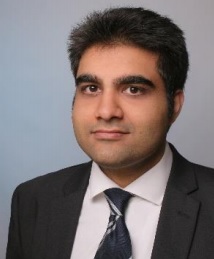Disclaimer: The Eqbal Ahmad Centre for Public Education (EACPE) encourages critical and independent thinking and believes in a free expression of one’s opinion. However, the views expressed in contributed articles are solely those of their respective authors and do not necessarily reflect the position or policy of the EACPE.
European countries follow different models of higher education systems. The English-speaking nationals of Ireland and the UK have the international Anglo-Saxon university system. Universities of Nordic countries have a similar system with their local variations and quirks. The other dominant model is the French one which can be found in France, Switzerland (French part) and Belgium (Southern Belgium). The German model of higher education is present in the DACH countries (German speaking nations) of Germany, Austria, Switzerland (German part). Netherlands and Dutch speaking Belgium also follow the German model. This article explains university education and research opportunities in Germany, which differs from the global Anglo-Saxon system in some respects. The information given is equally valid for the other countries which follow a German university system.
German University System
German public-school education system is divided in different hierarchical levels. The university system is an extension of public-school system and is also divided in different level and tiers. At the top of the academic food chain are the Universities (Universitäten) and Technical Universities (Technsiche Universitäten), which are research-oriented institutes, both of equal standing. Both universities and technical universities have similar status with the difference that a technical university is more centered around STEM subjects with a very strong offering of natural sciences, engineering and mathematics subjects. Non-STEM majors are secondary within a TU. Universities are clustered around non-STEM majors with some STEM offerings. The course content is mostly geared towards theory and higher abstraction. The best universities in Germany, similar to Russell group of UK or Ivy League of the US, are the TU9 and U15 league of universities which produce the lion’s share of research output in Germany and are at the forefront of cutting-edge research and are the centers of knowledge creation. Rest of the universities and TUs can be categorized as mid-level institutes of varying quality, they mostly focus on teaching and applied research. All universities and TUs are Ph.D. and Habilitation (higher doctorate) granting bodies. For a path to professorship one has to do either the lengthy Habilitation degree or to do post doctorate for several years.
A bit lower in prestige, but good with teaching and giving industry relevant skills, are the Universities of Applied Sciences (Fachhochschule). The new knowledge from research centers and universities permeates to universities of applied sciences. Both STEM and non-STEM majors are offered with less abstract and more practical course contents. Their range of subjects comprises specific fields such as technology, economics, social work or medicine. In the practical phases, students at universities of applied sciences complete work placements or internship semesters. The basic purpose which they serve is of supplying the German economy with graduates which are well versed in applied skills needed by the public and private sector. These universities do a pretty good job in creating high tech industries in less developed or rural parts of Germany. Graduates of UAS can only study up to a master’s degree as these are non-Ph.D. granting institutes. After graduating from UAS one has to pass additional courses at a university if one wants to continue for a Ph.D. Some research of mediocre level is done too, however that is not the main focus of these universities.
Also Read:
There are some other universities which are very specialized in scope, like Arts & Music Universities (Kunst- und Musikhochschulen), Theological Universities (Theologische Universitäten) and Teacher Training Schools (Pädagogische Universitäten). However, these attract very few students from outside of the country. An important thing to remember is that private universities do exist, however are they are not comparable in quality and influence with the public sector universities. Tuition fee is quite minimal for local and foreign students; however, this can change in future as a bit higher (but not exorbitant) tuition fee can be introduced for foreign students. At all universities the Admission Office manages the admissions of all international students and after arriving in Germany the International Office is the first point of contact for new students. Another point to remember is that the completion of studies takes a longer time in the German university system compared to English speaking countries.
Research Institutes in Germany
In Germany, the bulk of the country’s research output is produced by federally funded research institutes (Forschungseinrichtungen) which constitutes of different research networks and clusters. Research carried out by these institutes is comparable to the research conducted at universities and technical universities. Many times, research centers at these institutes, one can apply for internships, bachelor or master thesis, Ph.D. positions and for full-time jobs. Some institutes are Ph.D. degree-granting bodies whereas others grant PhDs in collaboration with local universities. For scientists and engineers, there are four major research organizations or research societies, apart from numerous other govt. and private research institutes, which have different branches all over Germany and abroad. These are:
-
Max Planck Society (For fundamental level research)
-
Fraunhofer Society (for applied sciences and engineering)
-
Helmholtz Society (for both fundamental and applied research)
-
Leibniz Society (for fundamental and applied research in social sciences and humanities)
-
Scientific Academies (for knowledge exchange and promotion of research)
The first four research institutes are what can be called national labs. One can apply for internships/thesis/PhDs/jobs at different branches of these institutes. Moreover, one can apply to different universities, technical universities and universities of applied sciences for research jobs and Ph.D. positions. Job postings for universities and research institutes can be found at their online job portals. Scientific Academies are clusters of science academies which sponsors different kinds of research and eases the academic exchange between different knowledge creating institutes.
Funding Issues
Both public sector bodies and private sector companies fund research of fundamental and applied nature. An important issue is the duration of job contracts given by university and research centers, which are almost always limited. Only tenured track professors and very few research employees, who mostly have PhDs and have an excellent research record, manage to get permanent contracts. Many research employees work for some years at these institutes, build up skills and knowledge, and later transfer to the industry jobs. Some people work in more applied research areas and later come back to research with industry contacts and are able to get permanent employee positions. That is how industry and academia exchange knowledge and skills with each other. A Ph.D. student and a post doctorate scholar can be either financed by a stipend or can work as an employee. DAAD (acronym for German Academic Exchange Service) is a German govts. liaison office for higher education exchange with the outside world. It provides useful information and services to international university graduates. It has branches all over the world and also provides scholarships to outstanding students across the globe. Pakistani students can apply for many of its numerous scholarships. Another source of scholarship for German universities are the famous Erasmus Mundus scholarships for M.Sc. and Ph.D. studies.
German Language & Cultural Competence
Without the mastery of German language, it is difficult to become successful in the higher education sector. Learning the language and culture is key to work, study, and integration in the German society. There are 6 levels of learning a European language (including German) according to the Common European Framework of Reference for Languages (CEFRL). These are A1, A2, B1, B2, C1 and C2. To work in Germany or in other German-speaking countries (Austria & Switzerland) a minimum level of B1 is required but the B1 level is not enough for effective communication and writing. So, learning German up to C1 level is highly recommended for cultural and professional reasons. Sprachinstitute (Language Institutes) of all universities in Germany offer German language courses up to C1 (DSH) level. To learn more about German language and culture watching local TV channels and reading newspapers and magazines is recommended. ARD and ZDF are state-subsidized TV channels. Private TV Channels include n-tv, N24, Tele 5, etc. Frankfurter Allgemeine Zeitung, Die Zeit, Die Welt, Der Spiegel, die Wirtschaft Woche are some of the famous newspapers and magazines, However, if one’s German language skills are not good at the beginning, one can read news about Germany, EU, and affairs and topics related to it in English language to remain up to date about current affairs in EU and Germany. Websites such as Deutsche Welle, Politico, The Local, etc. are useful for such purpose. Learning the language and delving into TV channels and written publications, along with interacting with local students and other natives, will help international students to overcome cultural barriers which many faces at the beginning of their student life in Germany.
Hassan Mirza
 The writer is working as an applied scientist in Germany and specialises in Computer Simulations, Applied Artificial Intelligence, and Energy Modelling. In his free time he reads extensively in multiple languages (Urdu, English and German) and is interested in writing about scientific and socio-economic issues.
The writer is working as an applied scientist in Germany and specialises in Computer Simulations, Applied Artificial Intelligence, and Energy Modelling. In his free time he reads extensively in multiple languages (Urdu, English and German) and is interested in writing about scientific and socio-economic issues.








Nice and informative article